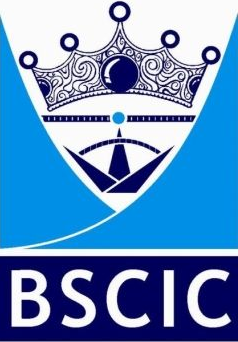
Developing Competency Criteria for Auditors by ISO 19011:2018
In the world of ISO certification, the competency of auditors is a cornerstone of effective and reliable auditing processes. ISO 19011:2018, the international standard for auditing management systems, provides comprehensive guidelines for auditing programs, including the critical task of developing competency criteria for auditors. This blog will delve into the essentials of these guidelines and how they can be applied to ensure that auditors are well-equipped to conduct thorough and effective audits within a certification body context.
Understanding ISO 19011:2018
ISO 19011:2018 offers guidance on managing audit programs, conducting audits, and evaluating auditor competencies. It emphasizes the importance of auditor competence to achieve the objectives of an audit and maintain the integrity of the audit process. This standard is applicable to all organizations, regardless of their size or the nature of their activities, making it a versatile tool for enhancing audit quality across various industries.
Key Competency Criteria for Auditors
To align with ISO 19011:2018, certification bodies need to develop competency criteria that cover several essential areas:
1. Knowledge and Skills
Auditors must possess a robust understanding of the specific management system standards they are auditing against. This includes:
- Technical Knowledge: Familiarity with relevant standards, regulations, and industry-specific requirements.
- Audit Principles: Understanding audit processes, methodologies, and techniques.
- Organizational Knowledge: Awareness of the organization's structure, processes, and culture.
- Audit principles, processes and methods: Knowledge and skills in this area enable the auditor to ensure audits are performed in a consistent and systematic manner.
- Management system standards and other references: Knowledge and skills in this area enable the auditor to understand the audit scope and apply audit criteria etc.
- The organization and its context: Knowledge and skills in this area enable the auditor to understand the auditee’s structure, purpose and management practices.
- Applicable statutory and regulatory requirements and other requirements: knowledge and skills in this area enable the auditor to be aware of, and work within, the organization’s requirements. Knowledge and skills specific to the jurisdiction or to the auditee’s activities, processes, products and services.
2. Personal Attributes
Effective auditors exhibit certain personal attributes that contribute to their ability to conduct audits impartially and competently. Key attributes include:
- Ethical Conduct: Integrity, fairness, and confidentiality.
- Open-mindedness: Willingness to consider alternative perspectives and new evidence.
- Diligence: Attention to detail and thoroughness in their work.
3. Practical Experience
Experience is a vital component of auditor competence. Certification bodies should ensure that auditors have:
- Relevant Auditing Experience: Experience in conducting audits within the relevant industry or against specific standards.
- Continual Professional Development: Engagement in ongoing training and development activities to keep skills and knowledge up-to-date.
Developing and Maintaining Auditor Competency
Certification bodies must establish a systematic approach to develop and maintain auditor competency. Here are some steps to consider:
1. Initial Training and Qualification
Before an auditor conducts any audits, they should undergo rigorous training that includes:
- Formal Education: Courses on relevant management system standards and auditing techniques.
- Mentorship Programs: Guidance from experienced auditors to gain practical insights and hands-on experience.
2. Ongoing Assessment and Improvement
Continuous improvement is key to maintaining auditor competency. This involves:
- Regular Performance Evaluations: Assessing auditors against predefined criteria to identify strengths and areas for improvement.
- Feedback Mechanisms: Collecting feedback from auditees and peers to enhance auditing practices.
- Refresher Training: Providing periodic training sessions to update auditors on new standards, regulations, and best practices.
3. The continual professional development activities should take into account the following:
- Changes in the needs of the auditor and CB for the conduct of the audit.
- Developments in the practice of auditing including the use of technology.
- Relevant standards including guidance/supporting documents and other requirements.
- Changes in sector or disciplines.
4. Documentation and Records
Maintaining comprehensive records of auditor qualifications, training, and performance evaluations is crucial. This helps in:
- Tracking Competency Development: Ensuring that all auditors meet the required competency criteria.
- Compliance and Accountability: Demonstrating adherence to ISO 19011:2018 guidelines during external audits or assessments.
Conclusion
Developing and maintaining auditor competency is a dynamic and ongoing process that is critical to the success of any audit program within a certification body. By adhering to the guidelines set out in ISO 19011:2018, certification bodies can ensure that their auditors are not only qualified but also continually improving in their roles. This commitment to auditor competency ultimately enhances the reliability and effectiveness of the audit process, fostering trust and confidence in the organization’s management systems.
Investing in the competency of your auditors is an investment in the quality and integrity of your audit processes. By following ISO 19011:2018, you can build a robust framework for developing auditor skills, ensuring that your certification body stands out in its commitment to excellence in auditing.
